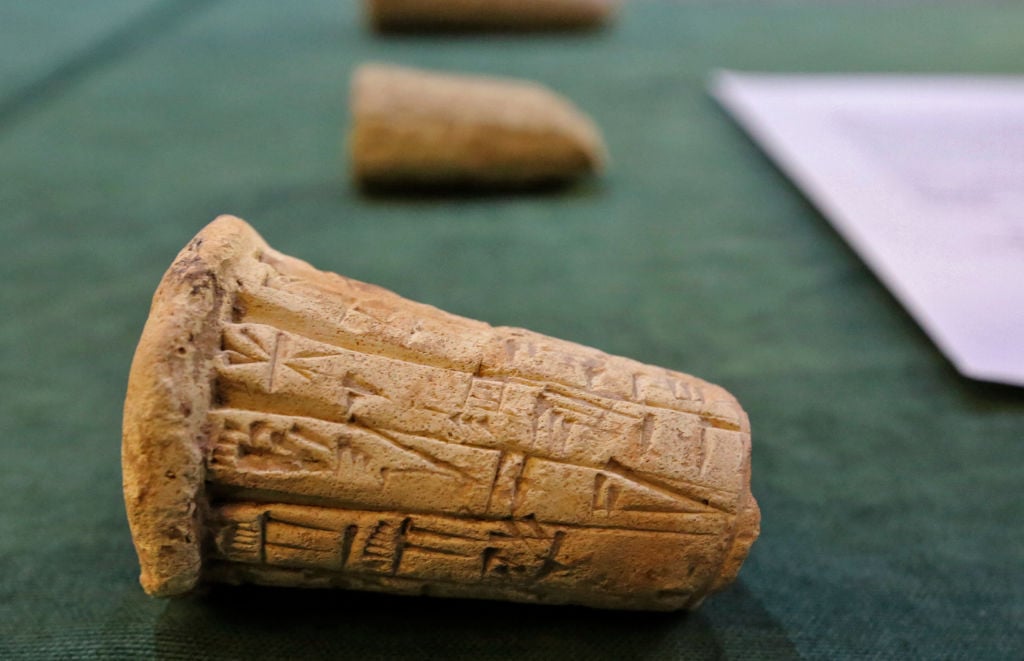
More than 17,000 looted ancient artifacts were returned to Iraqi authorities yesterday in a dramatic press conference at the foreign ministry in Baghdad.
The hoard is the largest-ever bulk restitution to Iraq. Many of the objects, which were recovered in the U.S., Japan, the Netherlands, and Italy, date back to ancient Mesopotamia.
Smugglers have taken advantage of decades of instability in Iraq since the U.S. invaded the country in 2003, to traffic looted cultural items on the international market.
Iraq’s culture minister, Hasan Nadhim, welcomed the recovery of the objects yesterday in a joint press conference with Iraqi prime minister Mustafa al-Kadhimi and foreign minister Fuad Hussein. But he also warned that the fight to recover Iraq’s lost heritage is far from over.
“There’s still a lot of work ahead in this matter. There are still thousands of Iraqi artifacts smuggled outside the country,” Nadhim said. He added that the support of the United Nations and international lawmakers has helped the fight to repatriate this stolen heritage. “The smugglers are being trapped day after day by these laws and forced to hand over these artifacts.”
Staff members at Iraq’s Ministry of Foreign Affairs work around crates of looted Iraqi antiquities returned by the U.S., ahead of a handover ceremony at the ministry in the capital Baghdad, on August 3, 2021. Photo by SABAH ARAR/AFP via Getty Images.
The artifacts were handed over in a set of large wooden crates. A few objects were on view at the conference, but the majority are being kept in storage until they can be examined Eventually, they will return to public view at the Iraq Museum in Baghdad.
Among the objects may be a rare cuneiform text known as the Gilgamesh Dream Tablet. The U.S. recently forced craft chain Hobby Lobby to forfeit the tablet, which was acquired for founder Steve Green’s beleaguered Museum of the Bible in Washington D.C., after finding out it had not been legally imported into the country.
Iraq’s cultural heritage has been particularly vulnerable to theft in the decades of instability following the fall of Saddam Hussein. Thieves plundered more than 15,000 objects from the Iraq Museum in the wake of the invasion, many of which have yet to be recovered. Others have taken advantage of insufficient security measures at the country’s numerous archeological sites to steal valuable heritage items.